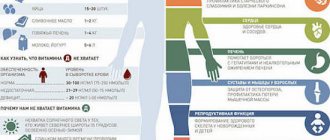Menactra is a vaccine produced by Sanofi Pasteur (USA). It protects against meningococcus groups A, C, Y and W-135 .
Vaccination against meningococcus is of great importance for both young children and adolescents. It is children under 5 years of age who most often become victims of the invasive form of the disease - meningococcemia (more than 30% of all cases). In fulminant forms, only a few hours may pass from the first symptoms to death.
Meningococcemia and meningococcal meningitis have a high mortality rate - about 15%, even with timely treatment. To this must be added the difficulty of early recognition of this infection and possible severe complications (paralysis, severe developmental delays, amputations of limbs).
It is not difficult to understand that meningococcal infection at the moment, although rare, is the most terrible of childhood diseases .
In recent years, cases of the disease have become more frequent among students and workers living in dormitories, which makes vaccination relevant for older people.
In the North-West region, the incidence of meningococcal infection caused by serogroup B (not included in the vaccine) has decreased in recent years at the expense of serogroup W (which is included).
Vaccine options
There are three types of vaccines available to combat this disease.
- Polysaccharide vaccines have been available to prevent meningococcal disease for more than 30 years. Meningococcal polysaccharide vaccines designed to combat the disease are bivalent (groups A and C), trivalent (groups A, C and W) or quadrivalent (groups A, C, Y and W135).
- It is impossible to develop polysaccharide vaccines against group B bacteria due to antigenic mimicry with polysaccharides in human neurological tissues. Therefore, group B vaccines, used in particular in Cuba, New Zealand and Norway, were outer membrane protein (OMP) and were intended to combat epidemics caused by specific strains. Other universal group B protein vaccines are in the final stages of development.
- Meningococcal group C conjugate vaccines have been available and widely used since 1999. Since 2005, quadrivalent group A, C, Y, and W135 conjugate vaccines have been licensed for use in children and adults in Europe, Canada, and the United States. The new group A meningococcal conjugate vaccine, introduced in 2010, has a number of advantages over existing polysaccharide vaccines: it produces a stronger and more durable immune response to group A meningococcus; reduces the carriage of bacteria in the throat. It is expected to provide long-lasting protection not only to vaccinated people, but also to family members and others who would otherwise be exposed to meningitis. The vaccine is available at a lower cost than other meningococcal vaccines; it is expected to be particularly effective in protecting children under two years of age who do not respond to conventional polysaccharide vaccines.
The following names of vaccines are used: polysaccharide - meningococcal group A vaccine, polysaccharide dry, polysaccharide meningococcal vaccine A+C, Meningo A+C, Mencevax ACWY and Menugate (conjugated tetravalent, against ACWY serotypes) and Menactra (conjugated tetravalent, against ACWY serotypes).
Vaccination is especially indicated for the following groups at high risk of meningococcal disease:
- persons who had direct contact with patients infected with meningococci of serogroups A, C, Y or W-135 (in the family or in closed institutions);
- persons with deficiency of properdin and complement components;
- persons with functional or anatomical asplenia;
- persons with cochlear implants;
- tourists and persons traveling to hyperendemic areas for meningococcal disease, such as sub-Saharan Africa;
- employees of research, industrial and clinical laboratories who are regularly exposed to N. meningitidis in aerosol-forming solutions;
- students of various universities, and especially those living in dormitories or apartment-type hotels;
- conscripts and new recruits.
It should be added that the European Commission has currently approved the drug Bexsero, produced by the Swiss pharmaceutical company Novartis, intended to protect patients of all age groups, including children over two months, from meningococcal infection serogroup B.
Menactra
Trade name:
Menactra® [meningococcal polysaccharide vaccine (serogroups A, C, Y and W-135), conjugated with diphtheria toxoid]
Group name:
Vaccine for the prevention of meningococcal infections of serogroups A, C, W, Y, polysaccharide, conjugated
Dosage form:
Solution for intramuscular administration Vaccine Menactra® is a solution of purified capsular polysaccharides of Neisseria meningitidis groups A, C, Y and W-135, individually conjugated to a carrier protein (purified Corynebacterium diphtheriae toxoid).
Compound
One dose (0.5 ml) contains:
Active ingredients: Monovalent meningococcal conjugates (polysaccharide + carrier protein): Serogroup A polysaccharide - 4 µg Serogroup C polysaccharide - 4 µg Serogroup Y polysaccharide - 4 µg Serogroup W-135 polysaccharide - 4 µg Diphtheria toxoid ~ 48 µg
Excipients: Sodium chloride 4.35 mg, sodium hydrogen phosphate 0.348 mg, sodium dihydrogen phosphate monohydrate 0.352 mg, water for injection - up to 0.5 ml.
Description
Colorless transparent or slightly cloudy solution.
Pharmacotherapeutic group
MIBP vaccine.
ATX code
J07AH08
Pharmacological properties
The causative agent of meningococcal infection, including meningitis and septicemia, is the bacterium N. meningitidis; There are a number of serogroups of the pathogen. Administration of the Menactra® vaccine induces the production of specific antibodies that have bactericidal activity against capsular polysaccharides of the meningococcal pathogen serogroups included in the vaccine (A, C, Y and W-135).
Immunological efficacy Clinical efficacy studies have not been conducted because serum bactericidal antibodies (SBA) are considered to be an indicator of the effectiveness of meningococcal vaccines.
The immunological properties of the Menactra® vaccine were studied in 3 clinical studies in children aged 9-18 months, in 4 clinical studies in children aged 2-10 years and in 6 clinical studies in persons aged 11-55 years. Immunogenicity was assessed by the level of functional antibodies determined using the SBA assay.
The primary immunological profile of the vaccine was studied in clinical studies in participants aged 2-10 years. The immune response was assessed 28 days after administration of the Menactra® vaccine (compared to the initial level of antibodies before vaccination). A significant increase in geometric mean SBA titers was observed in study participants. In 86-100% of participants with initially undetectable SBA titer values (<1:8), seroconversion was noted for antigens of all serogroups of the pathogen, defined as a 4-fold (or more) increase in antibody titers 28 days after vaccination in comparison with the antibody titer before vaccination.
The ability of the Menactra® vaccine to induce the development of immunological memory after primary vaccination is confirmed by data from clinical studies in children and adults.
Results of 3 clinical studies conducted in children aged 9-18 months with a single or double dose of Menactra® vaccine alone or concomitantly with other pediatric vaccines (pneumococcal conjugate vaccine (PCV) or measles, mumps, rubella and varicella vaccine (MMRV) )) confirmed that the majority of participants in the two-dose Menactra vaccine groups, when administered alone or concomitantly with other pediatric vaccines, had an increase in SBA titres of ≥1:8 to all vaccine serogroups. ≥91% and ≥86% of participants in the separate two-dose Menactra vaccine group experienced an increase in SBA titer of ≥1:8 to serogroups A, C, Y and serogroup W-135, respectively. After a second dose of Menactra® vaccine was administered concomitantly with PCV or with MRCV (or MRCV + vaccine for the prevention of infections caused by Haemophilus influenzae type b), the majority of study participants experienced an increase in SBA titer ≥1:8 (in >90% of study participants to serogroups A, C and Y, in >81% of participants to serogroup W-135). The values of geometric mean titers of SBA after vaccination to all four serogroups of meningococci included in the vaccine were high.
Results from studies conducted in participants aged 11 to 18 years confirmed a significant immune response to a single dose of Menactra® vaccine. The values of geometric mean SBA titers on the 28th day after vaccination were significantly higher than the initial ones. In addition, in 98-100% of adolescents in whom the antibody titer was not initially determined (<1:8), by the 28th day there was a 4-fold (or more) increase in the SBA titer to all serogroups of the pathogen included in the vaccine . The results obtained indicate the high immunogenicity of the vaccine in adolescents.
When analyzing by serogroup, it was revealed that 93-100% of adult participants in clinical trials with initially undetectable antibody titers (<1:8) by the 28th day had a 4-fold (or more) increase in the SBA titer to all serogroups of the pathogen included included in the vaccine. In each of the 3 studies, the immunological response induced by Menactra® vaccine was similar when assessed by sex, age and race.
Immune response kinetics: There are no data on the kinetics of the initial response to Menactra® vaccine, however, as with other polysaccharide and conjugate vaccines, immune protection usually develops 7-10 days after vaccination.
Duration of protection: The ability of the Menactra® vaccine to induce the formation of immune memory after primary vaccination has been proven in clinical studies. One study demonstrated that the persistence of bactericidal antibodies in the blood 3 years after a single administration of the Menactra® vaccine was higher compared to a group of vaccinated individuals who received a single immunization with an unconjugated 4-valent polysaccharide meningococcal vaccine against serogroups A, C, Y and W -135. In the group vaccinated with the Menactra® vaccine, a higher concentration of SBA was observed, as well as a higher proportion of individuals who had specific high-avidity antibodies, which indicates the formation of immune memory.
Immunogenicity in adolescents and adults after booster vaccination In a clinical study conducted in the United States, 834 people were given a single booster dose of Menactra® vaccine 4 to 6 years after vaccination. Before booster vaccination, the proportion of participants with an SBA titer <1:8 was 64.5%, 44.2%, 38.7%, and 68.5% for serogroups A, C, Y, and W-135, respectively. In the subgroup of study participants whose response was assessed on day 6 after revaccination (n=112), 86.6%, 91.1%, 94.6%, 92.0% of patients achieved a ≥4-fold increase in SBA titer for serogroups A, C, Y and W-135, respectively. The proportions of study participants (n=781) who achieved a ≥4-fold increase in SBA titer on day 28 after revaccination were 95.0%, 95.3%, 97.1% and 96% for serogroups A, C, Y and W-135, respectively. The proportion of study participants achieving an SBA titer ≥1:8 at day 28 was >99% for each of the 4 serogroups.
Indications for use
Prevention of invasive meningococcal infection caused by N. meningitidis serogroups A, C, Y and W-135 in persons aged 9 months to 55 years.
Contraindications
- Known hypersensitivity with systemic manifestations to any component of the vaccine, including diphtheria toxoid, or to previous administration of other vaccines containing the same components. — Acute infectious and non-infectious diseases, exacerbation of chronic diseases (in these cases, vaccination is carried out after recovery or in remission).
Use during pregnancy and breastfeeding
Animal studies have not revealed a negative effect of the Menactra® vaccine on pregnancy and embryofetal development, the birth process and postnatal development. Because there are no studies of vaccination in pregnant women, and post-marketing experience with its use in pregnant women is limited, administration of the vaccine to pregnant women is recommended only when absolutely necessary, such as during an outbreak of meningococcal disease, before traveling to an endemic area, and only after assessing the balance of benefits and risks of vaccination.
It is currently unknown whether the active ingredients contained in the vaccine are able to pass into breast milk. However, it has previously been shown that antibodies to polysaccharides are detected in young breastfed mice.
Studies in mice have not demonstrated any adverse effects on the postnatal development of offspring receiving antibodies induced by Menactra® vaccine in their mother's milk. At the same time, the effects in children of the first year of life whose mothers were immunized with the Menactra® vaccine during breastfeeding have not been studied. Before deciding to immunize a nursing woman, the risks and benefits of this immunization must be assessed.
Directions for use and doses
Vaccination is carried out with one dose of 0.5 ml.
The vaccine should be administered intramuscularly, taking into account the age of the person being vaccinated: for children aged 9 to 12 months - in the anterolateral region of the thigh; for children 12 months and older and adults - into the deltoid muscle of the shoulder.
Do not administer the vaccine intravascularly. Before insertion, you must ensure that the needle does not enter a blood vessel.
In children aged 9 to 23 months, the course of vaccination with the Menactra® vaccine consists of 2 injections of one dose of vaccine (0.5 ml) with an interval of at least 3 months.
In persons aged 2 to 55 years, vaccination is carried out with a single dose of 0.5 ml.
If the risk of meningococcal disease remains, a single booster dose may be given in accordance with national recommendations if at least 4 years have passed since the previous dose.
Side effect
The nature and frequency of side effects identified in studies varied depending on the age of those vaccinated.
In clinical studies in children aged 9 to 18 months, the most common symptoms reported within 7 days of vaccination were injection site tenderness and soreness. During clinical studies in children aged 2 to 10 years, the most commonly observed pain and redness at the injection site, irritability, diarrhea, drowsiness, and anorexia; In adolescents aged 11 to 18 years and adults aged 18 to 55 years, the most common symptoms reported were pain at the injection site, headache, and fatigue.
The incidence of the following side effects is classified according to the recommendations of the World Health Organization (WHO) and includes the following categories:
- Very common: ≥ 10%
- Common: ≥ 1% and < 10%
- Uncommon: ≥ 0.1% and < 1%
- Rare: ≥ 0.01% and < 0.1%
- Very rare: <0.01%
- Frequency unknown: cannot be determined from available data.
Children aged 9 to 18 months Most of the recorded local and general reactions observed within 7 days after vaccination were mild and lasted less than 3 days. In addition, the following side effects have been noted:
Metabolic and nutritional disorders Very common: loss of appetite
Nervous system disorders Very common: drowsiness
From the gastrointestinal tract Very common or common: vomiting
General and injection site conditions Very common: soreness, injection site erythema, injection site swelling, irritability, abnormal crying, fever
Children aged 2 to 10 years Most of the reported local and general reactions observed within 7 days after vaccination were mild. In addition, the following violations were noted:
Metabolic and nutritional disorders Very common or common: decreased appetite
Nervous system disorders Very common or common: drowsiness
From the gastrointestinal tract Very common: diarrhea Common: vomiting
From the skin and subcutaneous tissues Common: rash, urticaria
Musculoskeletal and connective tissue disorders Common: arthralgia
General and injection site disorders Very common: soreness and tenderness at the injection site Very common or common: irritability, redness at the injection site, swelling at the injection site, fever
Persons aged 11-55 years Most of the reported local and general reactions observed within 7 days after vaccination were mild. In addition, the following violations were noted:
Metabolic and nutritional disorders Very common or common: decreased appetite
Nervous system disorders Very common: headache
From the gastrointestinal tract Very common or common: diarrhea Common: vomiting
Skin and subcutaneous tissue disorders Common: rash
Musculoskeletal and connective tissue disorders Very common: arthralgia
General disorders and disorders at the injection site Very common: pain, induration, redness and swelling at the injection site, fatigue, general malaise Common: chills, fever
Revaccination In adolescents and adults, serious adverse events occurred in 1.3% of cases after revaccination with the Menactra® vaccine.
The most common local and systemic reactions reported within 7 days after vaccination were injection site pain (60.2%) and myalgia (42.8%). The average frequency of local and general reactions in adolescents and adults after a single primary immunization and after revaccination with the Menactra® vaccine did not differ. Most reported reactions were mild or moderate and resolved within 3 days.
During the post-registration period, information was additionally received on the following adverse events after administration of the drug (currently, the incidence of these events and their cause-and-effect relationship with the use of the Menactra® vaccine cannot be determined):
From the blood and lymphatic system Lymphadenopathy
From the immune system Hypersensitivity reactions, such as anaphylactic shock, anaphylactoid reactions, wheezing, difficulty breathing, swelling of the upper respiratory tract, urticaria, redness of the skin, itching, decreased blood pressure.
From the nervous system: Guillain-Barré syndrome (GBS), paresthesia, loss of consciousness (caused by dysregulation of the autonomic nervous system), dizziness, convulsions, facial paralysis, acute disseminated encephalomyelitis, transverse myelitis.
Musculoskeletal and connective tissue disorders Myalgia
General Disorders and Injection Site Disorders A widespread injection site reaction, manifested by severe swelling of the extremity, may be accompanied by redness, a feeling of heat at the injection site, increased sensitivity, or pain at the injection site.
Post-marketing safety study The risk of GBS after administration of Menactra® vaccine was assessed in a retrospective cohort study (USA). In a medical study of 1,431,906 patients who received Menactra® vaccine, 72 cases of GBS were reported. In all cases, Menactra® vaccine was administered to patients no earlier than 42 days before the onset of symptoms. An additional 129 cases of GBS were not confirmed or were excluded from the analysis due to missing or insufficient medical information. Based on the results of the analysis, the additional risk of GBS was estimated to range from 0 to 5 additional cases of GBS per 1,000,000 vaccinated within 6 weeks after vaccination.
Overdose
No cases of overdose have been reported.
Interaction with other drugs
The Menactra® vaccine was used in persons aged 18-55 years simultaneously with a polysaccharide vaccine for the prevention of typhoid fever and in persons aged 11-17 years simultaneously with an adsorbed vaccine against diphtheria (with reduced antigen content) and tetanus, intended for use in older children age, teenagers and adults.
In clinical studies in children aged 4 to 6 years inclusive, the Menactra® vaccine was used together with the vaccine for the prevention of diphtheria, tetanus, whooping cough (acellular). In clinical studies in children younger than 2 years of age, Menactra® was given with one or more of the following vaccines at the time of the second dose at 12 months of age: pneumococcal 7-valent conjugate vaccine (PCV7), measles, mumps, rubella vaccine ( with or without a varicella component), varicella vaccine, hepatitis A vaccine, or Haemophilus influenzae type b vaccine.
When Menactra® and Diphtheria, Tetanus, Pertussis (Acellular) Vaccine are co-administered in children 4 to 6 years of age, it is preferable to administer both vaccines at the same time, or Menactra® should be administered before Diphtheria, Tetanus, Pertussis (DTP) Vaccine ( acellular). A decreased immune response to Menactra® vaccine has been demonstrated when administered one month after administration of diphtheria, tetanus, and pertussis (acellular) vaccine. There are no data available to evaluate the immune response to Menactra after administration of diphtheria, tetanus, pertussis (acellular) vaccine in children under 4 years of age or to Menactra after administration of other vaccines containing diphtheria toxoid to persons under 11 years of age.
Pneumococcal antibody titers against some PCV7 serotypes were reduced after coadministration of Menactra® and PCV7.
BCG vaccine should not be used simultaneously with Menactra® vaccine.
Vaccines must always be administered to different parts of the body, using separate syringes for each of them.
special instructions
Vaccination is especially indicated for the following groups at high risk of meningococcal disease:
- persons who had direct contact with patients infected with meningococci of serogroups A, C, Y or W-135 (in the family or in closed institutions); - persons with deficiency of properdin and complement components; - persons with functional or anatomical asplenia; - tourists and persons traveling to areas hyperendemic for meningococcal infection, such as sub-Saharan African countries; — employees of research, industrial and clinical laboratories who are regularly exposed to N. meningitidis in solutions capable of aerosol formation; - students of various universities, and especially those living in dormitories or apartment-type hotels; - conscripts and new recruits.
It is prohibited to administer Menactra® vaccine subcutaneously or intradermally as there is no data on the safety and effectiveness of the vaccine when administered subcutaneously or intradermally.
Do not mix Menactra® vaccine in the same syringe with other vaccines or medications.
The vaccine has not been studied in people with thrombocytopenia or bleeding disorders. As with other vaccines administered intramuscularly, the benefit versus risk of using the vaccine should be assessed in individuals at increased risk of bleeding from intramuscular injection.
The risk of developing Guillain-Barré syndrome (GBS) after administration of the Menactra® vaccine was assessed in a post-marketing retrospective cohort study. Cases of the development of GBS have been described, characterized by a temporal connection with the administration of the Menactra® vaccine. Individuals who have previously been diagnosed with GBS may be at increased risk of developing this condition after receiving the Menactra® vaccine. The decision to use Menactra® vaccine in this situation should be made after assessing the potential benefits and risks.
The vaccine is not intended for the prevention of meningitis caused by other microorganisms or for the prevention of invasive meningococcal infection caused by meningococcal serogroup B.
Although a humoral immune response to diphtheria toxoid may be observed after administration of Menactra® vaccine, this vaccine cannot be considered an immunizing agent against diphtheria. It is not recommended to change the vaccination schedule with standard diphtheria vaccines in connection with the introduction of the Menactra® vaccine.
In persons with an impaired immune status, as well as against the background of immunosuppressive therapy, a reduced immune response to the administration of the Menactra® vaccine may be observed.
As with any vaccination, protective immunity may not be developed in 100% of those vaccinated.
Before administering a vaccine, the health care provider or prescriber should inform the patient, parent, guardian, or other responsible adult of the potential benefits and risks associated with receiving the vaccine.
Before administering the vaccine, the necessary precautions should be taken to prevent severe adverse reactions, namely: review the patient's vaccination history, find out the presence of contraindications to immunization, and assess the patient's current health status.
The vaccine is administered under the supervision of a medical professional, and the necessary means of anti-shock therapy (for example, solutions of epinephrine hydrochloride (1:1000) and glucocorticosteroids for injection) must be available in the office where vaccination is carried out.
Cases of fainting have been reported following administration of the Menactra® vaccine. Provisions should be made to prevent injuries associated with fainting and to provide medical care in the event of fainting.
Impact on the ability to drive vehicles and machinery
No studies have been conducted to study the effect of the vaccine on the ability to drive a car or use other machinery.
Release form
Solution for intramuscular administration 0.5 ml/dose. 1 dose (0.5 ml) of the drug in bottles of transparent borosilicate glass (type I) with a capacity of 3 ml, which are sealed with a stopper made from a mixture of chlorobutyl (latex-free) and synthetic polyisoprene, and rolled up with an aluminum cap equipped with a tear-off plastic cap "flip-off" type. 1 or 5 bottles along with instructions for medical use in a cardboard pack.
Best before date
2 years. Do not use after the expiration date stated on the package. The expiration date is the last day of the month indicated on the package.
Storage conditions
At temperatures from 2 to 8 °C. Do not freeze. Keep out of the reach of children. The drug that has been frozen cannot be used.
Transportation conditions
At temperatures from 2 to 8 °C. Do not freeze.
Vacation conditions
Dispensed by prescription.
Manufacturer
Sanofi Pasteur Inc., USA
Principles and purposes of vaccination
Meningococcal disease is potentially fatal and should always be treated as a medical emergency. Meningococcal meningitis occurs in small clusters worldwide, with seasonal variations and a varying percentage of epidemic bacterial meningitis cases.
Meningococcal meningitis is a bacterial form of meningitis, a serious infection that affects the lining of the brain. It can cause severe brain damage and, if left untreated, is fatal in 50% of cases. But even when diagnosed early and treated properly, up to 16% of patients die, usually within 24 to 48 hours of symptoms appearing.
It is important to remember that there are endemic areas of meningococcal infection in the world, the so-called meningitis belt of Africa (sub-Saharan Africa, stretching from Senegal in the west to Ethiopia and Egypt in the east). High incidence is observed in Canada, with outbreaks occurring in France and the USA. Students of closed educational institutions and colleges are especially vulnerable.
Who needs to be vaccinated against meningitis, and why it is not in the National Calendar
Author:
Reznik Irina
8 minutes
31046
Meningitis annually claims the lives of dozens of Russians, and hundreds suffer from severe complications. This season was no exception: two children have died in Moscow since the beginning of the year. After the story of a woman who lost her five-year-old daughter appeared on Facebook, an active discussion began online about why there are no vaccinations against meningitis in the Russian National Calendar, and children die from what is considered a vaccine-controlled infection. Coppernews asked these questions to the experts.
Meningitis is a disease in which inflammation of the membranes of the spinal cord and brain occurs. The disease progresses very quickly and in some cases can cause severe brain damage and even death. Meningitis is divided into two main types:
- serous, caused by a viral infection entering the body
- purulent, the causative agents of which are bacteria - meningococci, pneumococci and hemophilus influenzae
In Russia, among the causative agents of purulent meningitis, the most common are meningococci types A and C - they are “responsible” for approximately 54% of purulent meningitis. Another 39% of cases of purulent meningitis are due to Haemophilus influenzae type B, and approximately 2% are due to pneumococcal infection.
Meningococcal disease is deadly and should always be treated as a medical emergency. If left untreated, 50% of cases are fatal. But even when diagnosed and treated early, up to 16% of patients die, usually within 24 to 48 hours of symptoms appearing.
Why is there no vaccination against meningitis in the National Calendar?
As explained by the head of the laboratory of vaccine prevention and immunotherapy of the Research Institute of Vaccines and Serums named after I.I. Mechnikov, Professor Mikhail Kostinov, in Russia, vaccination against meningococcal infection is included in the Vaccination Calendar for epidemic indications. That is, if it is necessary to prevent an epidemic, regions can purchase vaccines and vaccinate them en masse, especially for children. in the National Calendar when the incidence exceeds two cases per 100 thousand population. In Russia, this figure is almost an order of magnitude lower, and also significantly lower than in European countries, where such vaccination is considered mandatory.
What is considered an epidemic indication?
Such indications appear when an outbreak of meningitis is officially recorded somewhere or the incidence rate is higher than in Russia as a whole, Kostinov said. In addition, the sanitary and epidemiological situation becomes aggravated during natural disasters and major man-made accidents. So, four years ago, mass vaccination against major infections was carried out in the flooded territories of the Far East (and, by the way, after that, in the next 2-3 years, the incidence rate caused by pneumococcal infection dropped sharply here).
However, the Ministry of Health admits that the National Vaccination Calendar needs to be edited. There is hope that the changes will also affect the prevention of meningitis. Thus, at the Gaidar Forum held recently in Moscow, the Ministry of Health announced the initiative to create an independent group of experts on the development of the National Calendar of Preventive Vaccinations. The problem of the imperfection of the National Calendar was discussed during the forum discussion “Increasing the efficiency of the national immunization system.” Russian vaccine manufacturers have already expressed their desire to join the independent expert body.
Who is vaccinated without taking into account the epidemiological situation?
Such vaccination is carried out in the so-called risk groups (people with a removed spleen, with congenital immune deficiency, students, conscripts and recruits), says infectious disease specialist, MD. Andrey Devyatkin. Fortunately, we do not have an epidemic of meningococcal infection; there are isolated and group cases of the disease in some closed communities - military barracks, student dormitories. The disease affects mainly children and young people who have not yet had contact with meningococcus and acquired immune protection.
Despite the absence of an epidemiological situation, there are still a lot of cases of meningitis in all regions of the country, Kostinov believes. Therefore, in his opinion, it would be desirable to vaccinate children. Unfortunately, vaccination will have to be done at your own expense, but safety comes first.
In addition, it is recommended that people (including children over two years of age) traveling to countries where meningococcal disease is endemic get vaccinated. By the way, countries along the route of the Hajj, where the incidence rate is very high, do not issue a visa to pilgrims without a vaccination certificate.
What is the situation in Europe
According to the data cited by Mikhail Kostinov, in Europe there is much more meningococcal infection than in Russia, so all children there are vaccinated starting from the age of three months. This is explained by genetic and climatic characteristics - it’s still colder here. And, for example, in Italy, with its warm climate, vaccination against meningococcal infection, including against serotype B, which is almost never found in Russia, is carried out to all children at state expense three times, in the first and second year of life.
What serotypes are typical for our country?
According to Kostinov, one of the children who recently died in Moscow had meningococcus serotype C, the other had W-135. But in general, in Russia, the greatest epidemic danger is meningococcus serotype A. Other serotypes of meningococcus, designated by the letters of the English alphabet, as a rule, cause sporadic cases of disease, explains Devyatkin. However, in recent years, the number of severe cases of meningococcal infection caused by menigococcus serogroup W-135 (of African origin) has been increasing in the country.
As Devyatkin said, there is an endemic area in the world for meningococcal infection, the so-called meningitis belt of Africa (sub-Saharan Africa, stretching from Senegal in the west to Ethiopia and Egypt in the east). A high incidence of menigococcal infection is observed in Canada, with outbreaks occurring in France and the USA. Students of closed educational institutions and colleges are especially vulnerable. For us, the strain of menenigococcus serogroup W-135 is still new, and it is not yet clear whether cross-protection will work with it when using domestic polysaccharide vaccines (groups A and C), Devyatkin notes.
What meningococcal vaccines are available in Russia?
The most budget option is the meningococcal polysaccharide vaccine, which is used to develop immunity to serotypes A and C. But the imported Menactra vaccine has several advantages over it. Firstly, it contains polysaccharides of four serogroups - A, C, W and Y. And, secondly, it can be used in children from 8 months, Kostinov said. This is the so-called new generation conjugate vaccine ( representing complexes of bacterial polysaccharides and toxins ), which, unlike polysaccharide vaccines, is “seen” by the immune system of a child in the first year of life. The imported polysaccharide tetravalent vaccine “MentsevaxACWY” is an old generation vaccine and, like the Russian one, is used only from two years of age. There is no point in doing this before - the child simply will not develop immunity.
A separate issue is vaccination against meningococcus serotype B. Currently, no vaccine against this type of infection is registered in Russia, and some patients who want to be vaccinated go abroad, where they receive a drug called Bexsero. But the role of the vaccine against meningococcus B should not be exaggerated: according to Professor Kostinov, in our country it is very rare, and doctors practically do not know it.
For the same reason, foreign companies are in no hurry to promote such vaccines on the Russian market - after all, the drugs must be in demand. As explained by GlaxoSmithKline, the manufacturing company of Bexsero, indeed, this vaccine is not currently registered in Russia. “ We have not yet submitted it for registration in Russia. But we are considering this possibility ,” said a company representative. Producing vaccines is difficult and expensive, but for those GSK drugs that are in demand in Russia, the company, as a rule, fills the need.
Due to the fact that mass free vaccination against meningitis is currently not carried out in Russia, doctors recommend taking care of the vaccination yourself. At a minimum, the list of recommendations includes the drug Menactra. Here, for example, is the recommendation of Fedor Katasonov, a pediatrician at the GMS Clinic Center for Congenital Pathology:
“To prevent meningococcus from killing, we vaccinate our patients. About 98% of my patients receive Menactra , a vaccine that protects well against about half of meningococci and moderately protects against the other half. Some of them who travel to Europe, on my recommendation, take Bexsero there - a vaccine that reliably protects against the second half (and a little more - against gonorrhea). These vaccines are not and will not be included in our sinful calendar, they must be done at your own expense, but forgive me . Free healthcare is generally a harmful myth.”
In addition, infectious disease experts believe that patients should have access to all up-to-date vaccines, even if health officials do not consider some of them necessary for the population. Here is how Vasily Shakhgildyan, candidate of medical sciences, infectious disease doctor at the H-Clinic, commented on this question:
“I believe that the issue of registration and availability of European and North American medicines in Russia needs to be simplified. And, accordingly, make it possible to purchase them on the territory of the Russian Federation. This applies to both the Menactra vaccine and the Bexsero vaccine. Those wishing to be vaccinated against meningococcal infection with the new generation vaccine and the vaccine against meningococcal serotype B should have this opportunity. Yes, the issue of including vaccination against meningococcal infection in the official vaccination calendar (and, accordingly, doing it at public expense) requires discussion. But, I repeat, Russian citizens should have the opportunity to purchase this or that vaccine at their own expense and vaccinate their child, protecting him from meningococcal infection.”
How effective are vaccines?
As Devyatkin explained, vaccines against meningococcal infection do not guarantee long-term protection. The fact is that the effectiveness of vaccines is related to the type of pathogen. Vaccines against viral infections are most effective, especially when live viruses are used (for example, measles, rubella, oral polio vaccine). As for meningococcus, it is not a virus, but a microbe (the bacterium Neisseria meningitides), and vaccination against it is aimed at developing immunity to a specific strain of the pathogen serotype that causes a severe pathological process.
The polysaccharide of the protective capsule of the pathogen, specific for each serotype, is used as an antigen to create meningococcal vaccines. Such immunity is not permanent; at best, it will last 3-5 years. Almost all bacterial vaccines used are guaranteed to protect only for the next one-year period, and then immunity decreases. The main problem of specific (vaccinal) prevention of meningococcal infection is that it can be caused by 12 serotypes of the pathogen, and there is no universal vaccine against them yet.
How likely is it to get meningitis?
Fortunately, meningococcal infection is not a highly contagious infectious disease that is easily transmitted from person to person through fleeting contact, such as measles or chickenpox, notes Devyatkin. Meningococcal infection occurs only in humans; the pathogen is not stable in the external environment. The source of infection is a bacteria carrier or a patient with meningococcal nasopharyngitis, the mechanism of infection transmission is airborne. Therefore, for infection you need, firstly, quite long and close contact, close communication in a confined space with someone who is easily ill or a carrier of the microbe.
And secondly, for the development of the disease - a susceptible, non-immune person who has not encountered meningococcus before. Therefore, the expert believes, one should not be afraid of seasonal respiratory infections. Repeated acute respiratory infections are an opportunity to create lasting immunity, including natural anti-epidemic control against meningococcus. If a person gets sick with meningococcal nasopharyngitis, he will develop specific immunity against meningococcus. Thus, having become infected with meningococcus again, he will no longer become severely ill, and perhaps not at all.
However, one should not take every case of acute respiratory infections lightly, because respiratory symptoms can be the debut of a severe meningococcal infection, Devyatkin emphasizes. Therefore, each sick person must be isolated and immediately shown to a doctor. The main thing in the fight against meningococcal infection is the timely identification and isolation of all patients and carriers of the pathogen, immediate treatment of all patients.
Vaccine effectiveness
Vaccination is carried out once, the effectiveness is about 90%, immunity is formed on average within 5 days and lasts 3-5 years. In December 2010, a new meningococcal group A conjugate vaccine was introduced throughout Burkina Faso and parts of Mali and Niger, where a total of 20 million people aged 1–29 years were vaccinated. Subsequently, in 2011, these countries reported the lowest ever number of confirmed cases of meningitis A during the epidemic season. Immunization with polysaccharide vaccines leads to a rapid rise in antibodies, which persist in children for at least 2 years, and in adults - up to 10 years; revaccination is carried out every 3 years. Conjugate vaccines maintain immunity for 10 years and develop immunological memory.
WHO recommends polysaccharide vaccines A and C for persons over 2 years of age from risk groups, as well as for mass vaccination during an epidemic - both for individual protection and to create collective immunity and reduce carriage. A type C conjugate vaccine has been created and used in Europe, which has led to a sharp decrease in the incidence of meningitis C; England, Holland and Spain have included this vaccine in their calendars.
The effectiveness of meningococcal vaccine was also assessed in post-registration studies. Thus, in the fight against an outbreak of meningococcal infection in the United States, 36 thousand people aged 2 to 29 years were vaccinated. As a result of the case-control study, 85% effectiveness was revealed, and among children from 2 to 5 years old it was 93%.
Post-vaccination reactions
Vaccines against meningococcal disease are well tolerated. In 25% of vaccinated people, a post-vaccination local reaction is possible in the form of soreness and redness of the skin at the injection site. Sometimes there is a slight increase in temperature, which normalizes after 24-36 hours. These vaccines are not required for routine immunization in our country, but you need to know about them, especially for those parents whose child is at high risk of developing meningococcal infection, or those who are planning a vacation in countries with unfavorable conditions for the spread of this infection.
When to vaccinate?
Domestic vaccines - meningococcal A, A + C - are used from 18 months, and are also administered to adolescents and adults. These drugs can also be administered to children under 18 months of age if there is a sick person in the family or depending on the epidemic situation in the region. However, this measure does not create long-term, lasting immunity, and vaccination must be repeated after 18 months. Polysaccharide vaccines "Meningo A+C" and "Mencevax ACWY" are administered to children from 2 years of age. For vaccination of children over 9 months of age, the conjugate vaccine "Menactra" can be used, in this case it is prescribed twice with an interval of at least 3 months, and after 2 years is done once. The level of protective antibodies lasts up to 10 years.
Vaccination against meningococcal infection
Unfortunately, it is not included in the National Calendar of Preventive Vaccinations (and therefore is not available for free), but is included in the Moscow calendar and in the calendars of some developed countries. However, there is no international consensus on the optimal age of administration of Menactra and the frequency of revaccination. In the United States, the vaccine is administered twice, at 11 and 16 years of age; in England, separate components of the vaccine are introduced at a very early age - each country is based on its level of incidence at different ages and its budget for medicine. In Moscow, it is recommended to administer the vaccine “before entering children’s institutions.”
Meningococcus is a bacterial pathogen that has several serotypes, each of which is designated by a Latin letter or a letter and then a number. There is no cross immunity between them; a separate vaccine has to be developed and administered against each serotype. At first they were administered separately, separately against meningococcus group A (MenA), separately against meningococcus group C (MenC), etc. Menactra became a vaccine that combined protection against 4 of the 5 most dangerous serotypes of meningococcus: A, C, Y and W-135. At the time the vaccine was developed, a vaccine against group B meningococcus had not yet been invented. Now it has appeared, but is not available in Russia.
The Menactra vaccine is approved from 9 months of age to 55 years of age. When administered before 2 years, two doses are required with an interval of at least 3 months; when administered after 2 years, only one dose is required to create immunity for 5 years. At the Rassvet clinic, we recommend vaccination of children from 9 months, followed by revaccination every 5 years, or at least in adolescence. We recommend vaccination for adults only if there is a high risk of infection, after consultation with a doctor.
We also recommend receiving the Bexsero (meningococcal group B) vaccine if you are traveling to European countries where it is available, twice, 2 months apart. Unfortunately (since the vaccine is not available in the Russian Federation), not all families from Russia can follow this recommendation.
The Menactra vaccine has average tolerability: on the first day after vaccination, approximately every tenth vaccinated person may experience swelling, pain and swelling of the tissues at the injection site, general malaise, and a temperature of up to 38 °C. This reaction will last 1–3 days and will go away on its own . Ibuprofen or paracetamol can be used to relieve symptoms. The vaccine is not live, so there are no delayed reactions to it.
Vaccination calendar for children from 0 to 7 years old
Graphic calendar of vaccinations for children from birth to 7 years of age, indicating the timing of vaccine administration according to Russian rules. Source:
CDC calendar
Editorial team:
pediatrician Sergei Butriy








